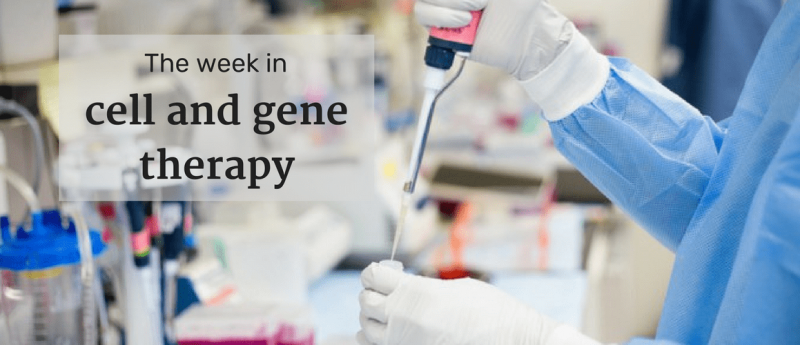Cell therapy weekly: Fujifilm to pump JP¥10 billion into contract manufacturing

This week: DiscGenics spinal cord therapy passes first-in-human safety review and research uncovers why checkpoint blockade therapies succeed or fail.
Editors note: An earlier version of this article stated incorrectly that JP¥10 billion was the equivalent of US$90 billion. JP¥10 billion is actually approximately US$90 million.
The news highlights:
Fujifilm to pump JP¥10 billion into contract manufacturing
DiscGenics spinal cord therapy passes first-in-human safety review
Research uncovers why checkpoint blockade therapies succeed or fail
Fujifilm to pump JP¥10 billion into contract manufacturing
Fujifilm Corporation (Tokyo, Japan) will invest JP¥10 billion (around US$90 million) in the expansion of its contract development and manufacturing (CDMO) business, including increasing cell culture manufacturing capacity by approximately 25% and microbial capacity by approximately 50% at its North Carolina (US) facility.
“We provide high-quality products and services through leading-edge, proprietary technologies in various fields,” said Takatoshi Ishikawa, Director, Senior Vice President, General Manager of Bio CDMO Division, FUJIFILM Corporation. “Fujifilm is dedicated to supporting the biologics industry by providing flexible manufacturing capacity that supports our clients in getting medicines to patients.”
DiscGenics spinal cord therapy passes first-in-human safety review
An allogeneic, injectable cell therapy has passed the initial safety review of it’s first-in-human clinical trial. IDCT, developed by DiscGenics, Inc. (UT, USA), is indicated for patients with mild to moderate degenerative disc disease and is currently undergoing a multicenter Phase I/II trial in 60 subjects.
“This is the first time IDCT has been administered to patients, and we are thrilled that there were no issues reported in this initial safety review,” said Flagg Flanagan, Chief Executive Officer and Chairman of the Board of Directors for DiscGenics. “As an organization, we are committed to protecting patient safety and are very pleased that the safety profile we witnessed in our preclinical experience with IDCT is being reflected now that the therapy is being used in human patients.”
Research uncovers why checkpoint blockade therapies succeed or fail
Research from the Brigham and Women’s Hospital (MA, USA) has uncovered a molecular factor, Tcf7, that may be predictive of whether checkpoint blockade therapies will succeed or fail. Tcf4, a transcription factor required for an immune cell population to have memory, was required for a checkpoint blockade therapy to work.
“Our study helps define an important immune cell population that responds to checkpoint blockade immunotherapy across different cancers and points to a critical factor in this therapy’s success,” said co-corresponding author Ana Anderson, PhD, a scientist at the Brigham. “With further study, we may be able to define biomarkers to predict a patient’s response to therapy and identify which cells are most important to target with immunotherapy approaches.”
For more weekly cell therapy news, read previous editions of the cell therapy weekly.